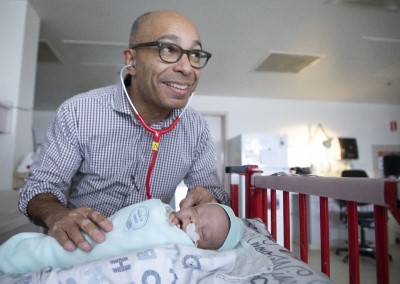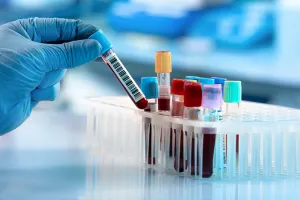“Cell atlas” could shine light on lung problems in adults and premature babies
 "Our findings provide new insights into developmental lung problems like BPD and reveal possible targets for future treatments. They may also help inform how to repair the damage to the tiny air sacs in the lungs caused by conditions like fibrosis or severe COVID-19." - Dr. Bernard ThébaudResearchers have built a "cell atlas" that shows all the cellular changes that happen during the last stages of lung development. Many premature babies are born before this stage is complete. As a result, they develop the chronic condition bronchopulmonary dysplasia (BPD) caused by the high levels of oxygen they need while their lungs finish developing.
"Our findings provide new insights into developmental lung problems like BPD and reveal possible targets for future treatments. They may also help inform how to repair the damage to the tiny air sacs in the lungs caused by conditions like fibrosis or severe COVID-19." - Dr. Bernard ThébaudResearchers have built a "cell atlas" that shows all the cellular changes that happen during the last stages of lung development. Many premature babies are born before this stage is complete. As a result, they develop the chronic condition bronchopulmonary dysplasia (BPD) caused by the high levels of oxygen they need while their lungs finish developing.
To understand what is happening during this late development stage, the team followed over 66,000 mouse lung cells through three crucial time points. Using a cutting-edge technique called single-cell RNA sequencing, they captured what these cells were doing during normal and impaired development.
This "cell atlas" allowed them to identify the most important cell subpopulations and molecular pathways responsible for impaired late lung development caused by exposure to high levels of oxygen. These cell populations and pathways could provide future treatment targets for BPD.
This study comes as Dr. Bernard Thébaud and his research team are launching a phase I clinical trial to test the feasibility and safety of using stem cells to treat premature babies with BPD.
"Our findings provide new insights into developmental lung problems like BPD and reveal possible targets for future treatments. They may also help inform how to repair the damage to the tiny air sacs in the lungs caused by conditions like fibrosis or severe COVID-19." - Dr. Bernard Thébaud
Authors: Maria Hurskainen, Ivana Mižíková, David P. Cook, Noora Andersson, Chanèle Cyr-Depauw, Flore Lesage, Emmi Helle, Laurent Renesme, Robert P. Jankov, Markku Heikinheimo, Barbara C. Vanderhyden & Bernard Thébaud
Source: Nature Communications
Core Resources: uOttawa Louise Pelletier Histology Core Facility
Funding: The study was funded by the Canadian Institutes of Health Research, the Finnish Sigrid Juselius Foundation, the Finnish Foundation for Pediatric Research, the German Research Foundation (Deutsche Forschungsgemeinschaft), the Ontario Institute for Regenerative Medicine, the Stem Cell Network, Heart and Stroke Foundation Canada, the Ontario Graduate Scholarship, the Lung Association Breathing as One, the Molly Towel Perinatal Research Foundation, the European Respiratory Society, Société Française de Néonatologie and the Canada Foundation for Innovation John R. Evans Leaders Fund. Research at The Ottawa Hospital is also enabled by generous donations to The Ottawa Hospital Foundation.
The Ottawa Hospital is a leading academic health, research and learning hospital proudly affiliated with the University of Ottawa.
Media Contact
Amelia Buchanan
Senior Communication Specialist
Ottawa Hospital Research Institute
613-297-8315
ambuchanan@ohri.ca
Learn more about:
The Ottawa Hospital is a leading academic health, research and learning hospital proudly affiliated with the University of Ottawa and supported by The Ottawa Hospital Foundation.


